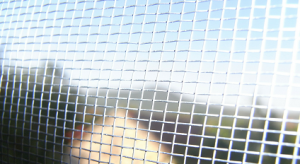Today I am publishing the next report in a series of studies commissioned by my office that give personal accounts of children living vulnerable lives. ‘Children’s Voices: A review of evidence on the subjective wellbeing of children in detention in England’ explores the views, perspectives and experiences of children in detention, by which we mean any child aged 17 and under held in any kind of facility in England (penal, educational, protective or other) from which they are not permitted to leave at will.
The report recounts the experiences of children from four particular groups: children in the youth justice secure estate, children detained for their protection and welfare by the state, children in mental health detention (usually under Section 2 of the Mental Health Act) for assessment and treatment and children in immigration detention (including children in removal centres).
I’ve heard myself first-hand accounts from young people about their lives in custody. Recently I visited Feltham YOI and I will be visiting all youth custodial establishments over the next year. My visit to Feltham raised issues and concerns that my team have heard on other visits to mental health secure units and of those placed in secure care for their own protection and welfare. Young people often talk about the relationship they have with staff and other young people in the secure setting and the impact both have on their ability to cope in the secure environment they are living in. Feelings of wellbeing and safety are always key concerns.
Many of these issues are reflected in the report I am publishing today which explores the views and experiences of children in detention. The term ‘detention’ fosters a number of interpretations – even by young people living in such environments. Not all young people in detention are there as a result of a criminal offence, some will be detained as a result of their health condition or mental health or their immigration status – regardless of this children regularly refer to themselves as being ‘locked up’ or ‘prisoners’. I’ve seen and heard for myself the impact these environments can have on children: violence, re-traumatisation, being restrained and feeling labelled as a ‘nuisance’ or ‘trouble’ are not unusual.
The sad reality is that such experiences have a significant impact on young people’s sense of self-worth, wellbeing and behaviour. One child tells the study they would: ‘just [like] to know what it’s like being a normal person. Wish I could have already gone down that route instead of being in here’. How we can encourage young people to envisage a positive future and achievable aspirations if they believe themselves to be a ‘waste’, discarded from society and forgotten about?
I have been heartened by the examples of positive work I have seen during my visits and listening to young people in secure care. Young people consistently talk about the importance of relationships, with staff, but particularly with family and friends. They provide them with the coping strategies to deal with life in detention and give them the support they need for reconnecting with the outside world. In the words of one child it’s comforting ‘knowing that I’ve got a good support network out there waiting for me’. Sadly, this isn’t the case for all children, with many also speaking about the security and safety detention provides in contrast to their chaotic family lives outside.
This report echoes the many voices I have heard from children about life in detention and provides clear evidence of the vulnerable lives many of these young people are living. It is also a reminder that the children in detention are just that – children. We have to make sure they are treated and supported as such.






